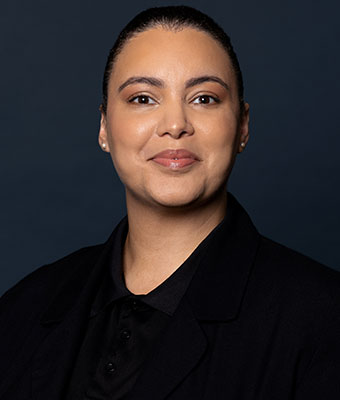Financial Modeling for Utility Tariff Setting
GROW CRUCIAL CAPACITY IN AFRICA’S POWER SECTOR
Course Overview
This specialised course provides delegates with essential skills and knowledge to develop comprehensive financial models for setting tariffs in regulated environments. With a strong focus on practical application, especially in the African context, the programme enables participants to perform sensitivity analyses and create diverse tariff paths, enhancing their ability to set precise and effective utility tariffs. Delegates will gain insights into critical modelling components, including the regulatory asset base, weighted average cost of capital, and energy and input costs.
What you will walk away with
- The skills needed to set tariffs in a regulated context.
- Fundamental knowledge of basic financial concepts and Excel formulas
- Knowledge of tariff objectives, structure, and valuation techniques
- A deep understanding of financial models
- The practical skills to build a financial model from scratch, incl. Regulatory asset base, weighted average cost of capital, and energy input cost
- The skills to analyse and provide various tariff paths
- A thorough understanding of tariff levels and structure, efficiency, and affordability
- Knowledge of fixed and variable costs
LEARN THE FUNDAMENTALS OF A TARIFF-SETTING FINANCIAL MODEL
The Financial Modelling course provides a basic understanding of the building blocks of a tariff-setting financial model. It teaches delegates to build a financial model that can run sensitivity analyses and provide various tariff paths.
The course builds on the foundational knowledge developed in the Managing Power Sector Reform and Regulation in Africa short course at the UCT GSB, but it can be taken as a stand-alone course.
Additional Course information
MODULE BREAKDOWN
Curriculum Overview
Introduction to Economic Regulation, Rate of Return Regulation, RAB, Cash & Accounting approaches, M
- Contextualise the enduring utility challenges in Africa, introduce the fundamentals of economic regulation and financial modelling, and introduce you to the financial model that we will be using during the course.
- Explore the key building blocks of the tariff model: establishing the regulated asset base and Revenue Requirement.
- Be exposed to the differences between accounting and cash-based approaches to tariffs determination, tax treatment (real vs flows), and the use of sensitivity analyses in financial modelling.
Regulatory Principles, Utility sustainability, CAPEX, Demand and Depreciation
- Explore utility sustainability (economic and financial), CAPEX, Demand and Depreciation.
- Explore the concepts of Regulatory Principles i.e. Regulatory Objectives and Instruments, the difference between economic and financial sustainability for a utility, and the key building blocks of the tariff model: capital expenditure (capex), sources of finance as well as conceptual foundations of capex treatment for expansion, replacements, and special projects to deliver efficient service delivery and within regulated targets.
- Be exposed to demand calculations - impact on costs and tariffs.
- Further analyse depreciation: understanding what it is, how it works, how it is treated (from a regulatory perspective), and how to calculate it in a financial model.
Opportunity Cost of Capital (WACC), OPEX and 3-Way Financial Statements
- Understand the opportunity cost of capital and the weighted average cost of capital (WACC).
- Look at the conceptual rationale for a just and reasonable opportunity cost of capital in a regulated environment, modelling WACC, understanding the impact of risk aversion, and exploring how different WACC inputs affect required tariffs.
- Delve into conceptual explanations for OPEX and resultant efficiency factors. We will also navigate models for developing and forecasting three-way financial statements: balance sheet, income statement and cash flow statement.
Tariff Structure and Modelling Skills
- Overview of allocative and equity objectives which will cover the different components of an efficient tariff structure, cost drivers and classifications (dimensions) and several tariff simulations for stepped tariffs and how this is tailored for regulatory relevance.
- Participate in a Case Study simulation for deriving and assessing economic and financial impacts of ex-ante and ex-post impacts on tariff paths.
- Take a step back, with the aim of thinking, through how the financial model is to be used (especially in a regulated environment), and how best we can do that using graphs, variance analysis and historic analysis.
Case studies, Best Practices for Modelling
- Explore the review of regulatory decisions and how they impact utility sustainability.
- Run a model simulation that achieves economic and financial equilibrium.
- Review the entire week's modelling with best practices for financial modelling.
Minimum Requirements:
- NQF4
- English proficiency
- Proficiency in Excel
Who should apply:
- Managers
- Senior professionals and advisors in utilities
- Utility board members
- Professional in the power sector
- Regulatory authorities
- Government
What our alumni say
Learn with the best
Our Internationally acclaimed researchers and teachers are all dedicated and gifted individuals who contribute directly to UCT GSB's reputation of excellence.

Course Convenor

Head: Executive Education

Manager: Executive Education Recruitment
FAQ
- 10% for groups of two or more
- 15% for UCT and UCT GSB alumni
- 10% for NPO’s/NPC’s
The UCT GSB's Breakwater Campus is situated in the heart of Cape Town's most popular tourist attraction, the Victoria and Alfred Waterfront. Centrally located and easily accessed, the UCT GSB is just 1.5km away from the central business district and 20 minutes from Cape Town International Airport.
As an added benefit to studying at the UCT GSB, you'll be situated in one of the most beautiful cities in the world
Certificate of completion
Flights & accommodation costs are not included.
The course is a non-credit-bearing course delivered at the equivalent of an NQF 8 postgraduate level of study.
The course is accredited through UCT, which is a registered public higher education institution with the Council on Higher Education (CHE). Each programme is accredited through an internal UCT quality assurance process, as delegated by the CHE, ensuring the excellent quality of our offering.In short, this course does not refer to NQF levels.
TAKE THE FIRST STEP TODAY
Acquire new competencies and move your career to the next level!
Ideas Exchange
Stay up-to-date with news and thought leadership from Africa’s top business school.
SubscribeRelated Courses

Managing New Power Markets And Regulation In Africa

Financial Modeling for Power Project Finance

